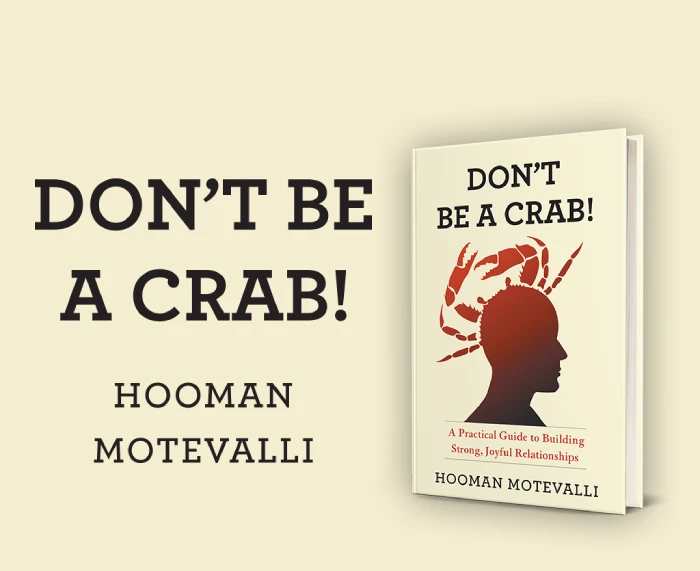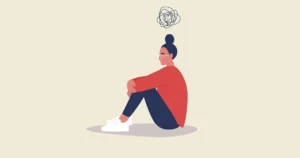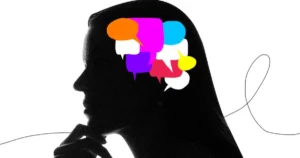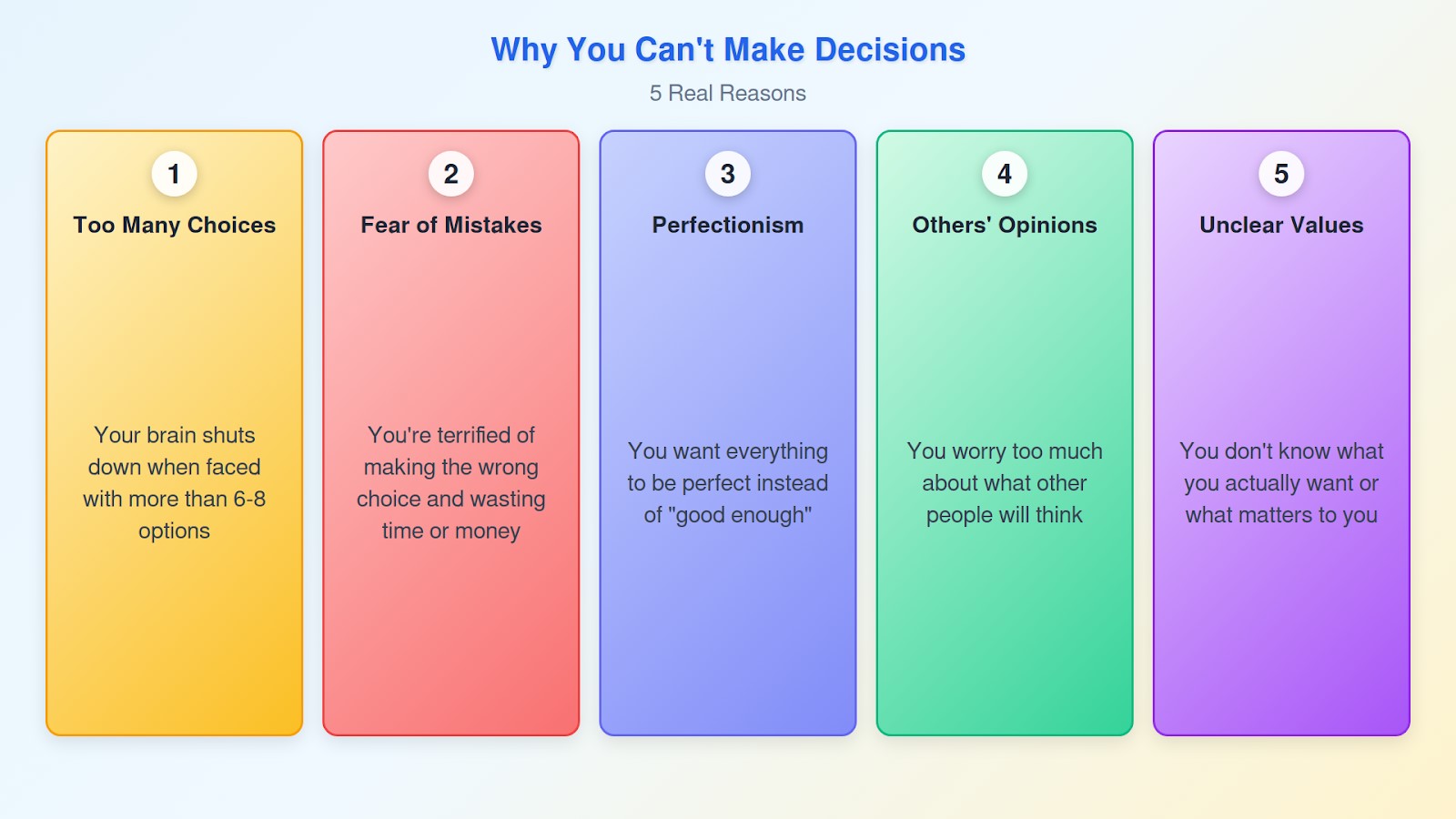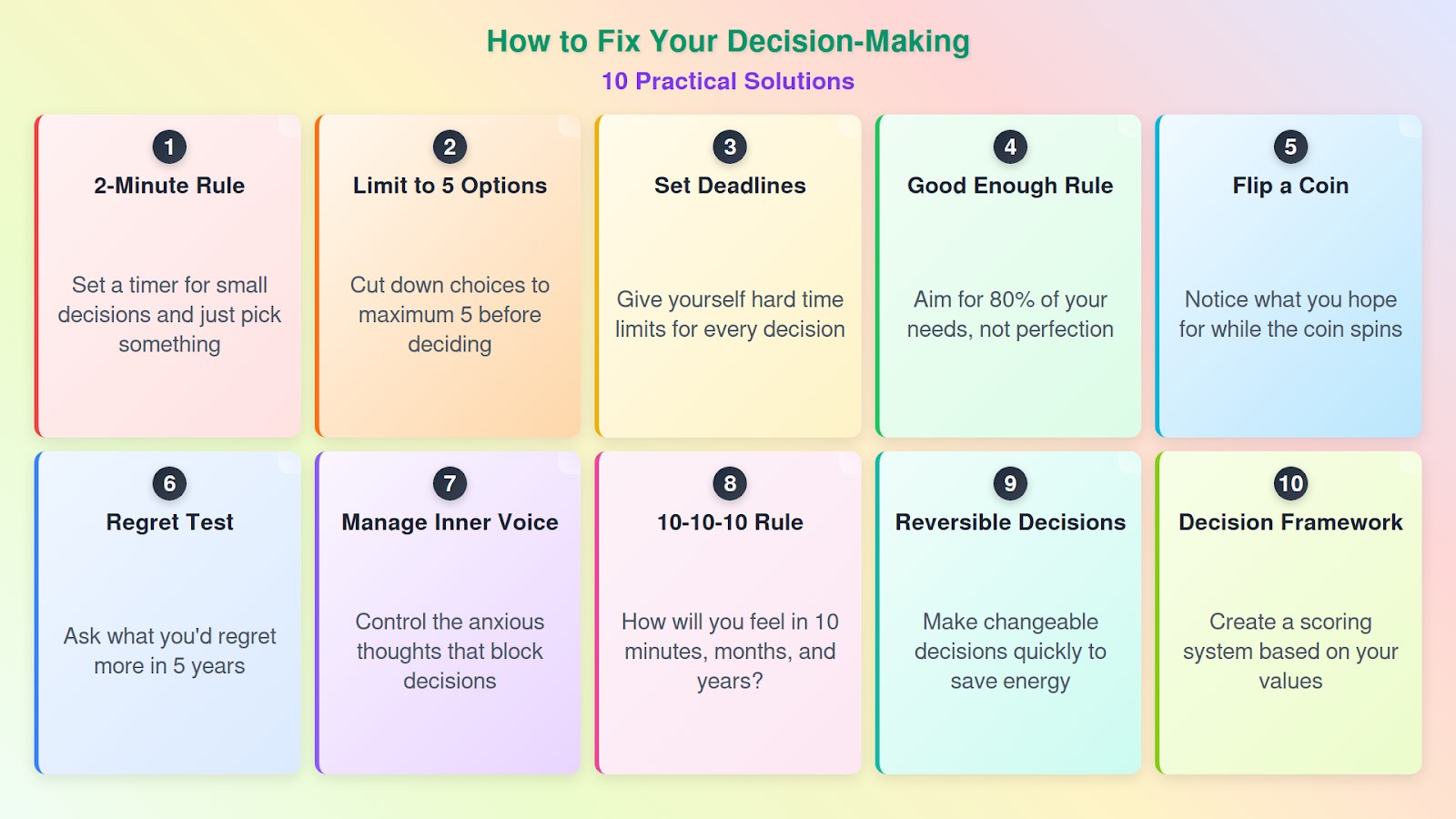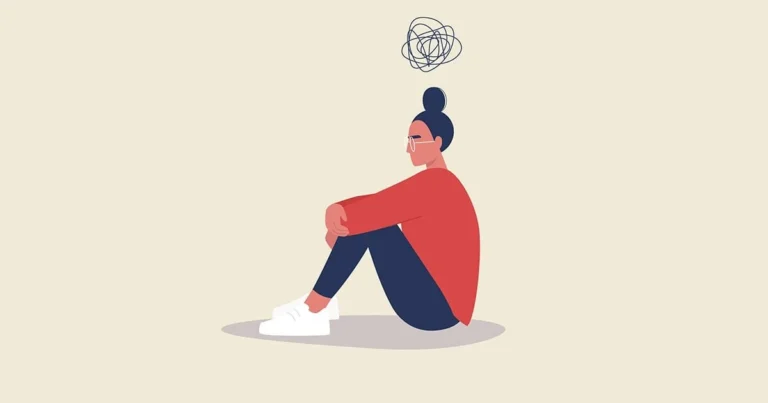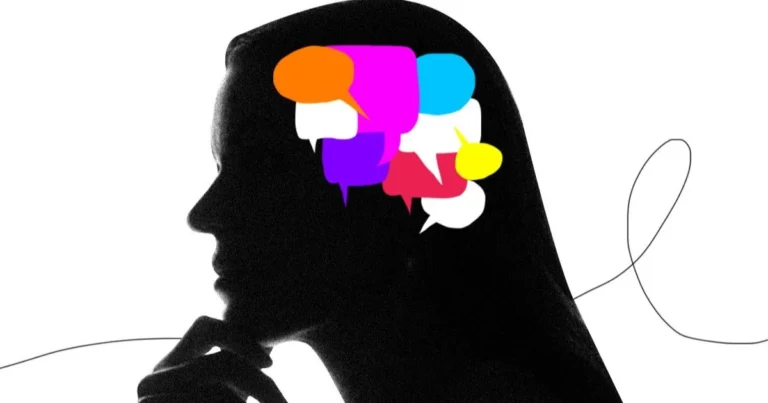We know you’ve been there. You spend 15 minutes looking through your clothes and can’t decide what to wear, or scrolling through apps for restaurants until your phone runs out of power.
Maybe you think there’s something wrong with you.
But the problem is that millions of people feel completely stuck when they have to make choices, no matter how big or small they are.
So there’s no need to feel weird or broken. You’re not alone either. Actually, your brain is trying to help you. It’s just absolutely awful at it. Just know that things start to make sense once you know what’s going on up there. And even better, you can fix it start by learning how to shift negative self-talk in under 5 minutes to take control of your decision-making process.
Why Can’t You Make Decisions? 5 Real Reasons
You know that time when you look at the ice cream aisle at the grocery store? There are about 40 types that all scream, “pick me!” Like mint chocolate chip, cookies and cream, rocky road, strawberry cheesecake, and more.
After that, something strange happens. Your brain pretty much stops working and says, “Nope.” However, the good news is that it’s completely normal.
Reason 1: Too Many Choices Break Your Brain
Suppose that some smart people set up a small jam stand at a high-end food store in the year 2000. They set out 24 different kinds of jam for people to taste on one day. Lots of people loved it, and everyone came by to taste.
What’s strange, though, is that almost no one bought jam that day.
What about the next day? They gave out just six jams. Nobody stopped to try them before, but all of a sudden, everyone was buying them. Basically, 10 times as many people bought jam (Iyengar & Lepper, 2000).
The same thing happens in your brain. When you give it too many choices, it just gives up and says “Nope, I’m out.”
Not because you’re lazy. Your brain is just trying to keep itself from getting too busy. Alexander Chernev and his team discovered that your brain starts quitting when you hit more than 6–8 choices (Chernev et al., 2015).
Reason 2: You’re Terrified of Screwing Up
You’re scared of making the wrong choice. And that fear? It’s running the show.
You worry about wasting money, wasting time, and missing out on something better. So instead of choosing anything, you just… don’t.
| Everyday Stuff | Big Life Stuff |
|---|---|
| Can’t pick a restaurant (what if it sucks?) | Won’t pick a career (what if I hate it?) |
| Spend forever choosing what to watch | Avoid buying a house |
| Change outfits five times | Can’t commit to relationships |
Thomas Gilovich and Victoria Medvec say that people who worry about making wrong choices end up regretting NOT choosing more than they regret any bad choice they make.
Reason 3: You Want Everything to Be Perfect (Spoiler: It Won’t Be)
Some people are always looking for the best choice. If that’s you, then you’re really making things hard for yourself.
Barry Schwartz and his group looked at people who choose to be perfect and people who choose to be “good enough.” Who do you think was happier?
The “good enough” people won by a long shot. And perfectionists took a lot longer to make decisions and were unhappy with their choices afterward.
Signs that you may be a perfectionist is if you:
- Do a lot of research on every buy.
- Always looking for something better.
- You feel bad even when you choose well.
- Rank your choices against those of other people.
- Always change your mind
Reason 4: You Care Too Much About What Others Think
You’re not just choosing for yourself but also you’re worried about how everyone else will judge your choice. That’s exhausting.
For example, you pick a restaurant and stress about whether your friends will like it ot not. Or choose an outfit and wonder what your coworkers will think.
Honestly, most people barely notice your choices, let alone judge them. But your brain doesn’t care about this fact and it just keeps stressing anyway.
It’s like having a really annoying roommate in your head who won’t shut up about what other people might think. Some researchers call this “the dark side of choice“ since having options actually makes things worse for everyone.
Reason 5: You Have No Clue What You Actually Want
You can’t always make up your mind because you don’t know what’s important to you. Also, every choice looks like a no-go when you don’t know what’s most important to you.
- When people ask you what you want, you say “I don’t care.”
- Feeling lost when you have tons of options
- Always ask other people what they think you should do.
People need to feel like they have power over their lives in order to be happy. But having power makes things more unclear when you don’t know what you want .
THE SOLUTIONS: How to Fix Your Decision-Making Problem?
Okay, enough talking about why you’re stuck. Time to fix it.
Solution #1: The 2-Minute Rule for Small Decisions
Just pick something and move on if it takes less than 2 minutes. Take your mind off of it. Don’t look into it. Try not to ask your mom. Just choose.
How does it work?
Watch out for time. Start a two-minute timer. When it goes off, choose the choice that feels best at that time.
Do this when you are:
- Not sure what to order while waiting in line for lunch
- Looking through Netflix for the third time tonight
- Feeling like “I have nothing to wear” as you look through your clothes.
- Watching the coffee menu like it’s written in ancient Egyptian hieroglyphs
One important thing Roy Baumeister learned about our brains is that we have so many choices every day and only limited energy. It’s like a phone charger. Each move you make lessens it slightly.
So taking 20 minutes to choose between a salad and a sandwich uses up energy that you’ll need later for bigger tasks.
Solution #2: Limit Your Choices to No More Than 5
Cut your choices down to no more than five before you start choosing. Cover up the rest. Ignore them. Act like they aren’t there.
How to do it?
- Add everything you’re thinking about.
- Mark as “not good” anything that stands out.
- Do not keep more than 5.
- Just chose one of those 5.
Remember that study about jam I told you about earlier?
Same thing happens in your brain. If you give it too many food choices, you’ll order pizza again. But just show it three or four places, and picking becomes easy.
Solution #3: Set Hard Deadlines for Every Decision
You’ll overthink stuff forever unless someone puts a timer on you. Deadlines work like magic because they force your brain to actually commit.
Just Pick a cutoff date. Commit to it. When that moment arrives, you select from whatever alternatives you’ve gathered. Finished.
Your timing blueprint:
- Small stuff (lunch, outfits): 30 minutes maximum
- Medium calls (weekend activities, purchases under $200): 1 week
- Larger moves (job switches, relocating): 1 month tops
- Major life shifts (marriage, children, career overhauls): 3 months absolute limit
Piers Steel found that we postpone selections because we fear making the incorrect move (Steel, 2007). Yet the longer you wait, the more terrible you feel about everything.
Solution #4: Use the “Good Enough” Rule
Don’t try to be perfect. Don’t even think about it. There is no such thing as perfection, and trying to find it is making you unhappy.
This is how “adequate” really works:
- List the things you must have.
- Find something that meets about 80 percent of those needs.
- Take it and carry on living your life.
Use this plan when you’re:
- Looking for a house that fits your price, is in a good area, and doesn’t need major repairs
- Searching for a job that meets your pay needs, uses your skills, and doesn’t have a bad reputation
- Building relationships (likes the same things you do, makes you laugh, and treats you nicely)
- Buying something expensive (that meets your needs, fits your budget, and won’t break right away)
Even back in 1956, Herbert Simon knew this. He called it “satisficing” to look for answers that are good enough instead of perfect.
Barry Schwartz and his colleagues proved this with actual research. “Maximizers” are people who want the best, and “satisficers” are people who are happy with what they have. Take a guess at who was happier. The satisfices always came out on top
Solution #5: The Flip-a-Coin Test
You have a lot more sense than you think. This is crazy, but it’s true.
Christopher Hsee and Reid Hastie believes that we’re absolutely terrible at predicting what’ll actually make us happy (Hsee & Hastie, 2006). Also, our thinking brain gets in the way of our feeling brain, which usually knows better.
Have two options that are making you crazy? Get a coin. Pick out which side means what. Turn it over. The exciting part is when you watch it spin and think about what you really want it to drop on. Then that’s your answer.
Perfect for when you’re:
- Trying to decide between two good job offers
- Not sure if you should finally break up with that person
- Feeling stuck and not sure whether to move or stay put?
- Thinking about whether to go ahead with that business idea
What Timothy Wilson and Jonathan Schooler found was really strange. According to Wilson and Schooler (2008), college students who thought about why they liked certain jams chose worse ones than students who just went with their gut. They messed up their natural abilities by thinking too much.
Solution #6: Ask Yourself “What Would I Regret More?”
You’re 40, sitting in the same boring cubicle you’ve been in for 8 years. Then your friend just told you about their awesome business they started at your age. Your stomach drops and you remember that business idea you had but never tried because it felt “too risky.”
That sick feeling? That’s regret talking. And it’s telling you what actually matters to you.
Terry Connolly and Marcel Zeelenberg said how regret messes with our heads (Connolly & Zeelenberg, 2002). Turns out, we regret stuff we didn’t try way more than stuff we tried and bombed at.
So to not regret, picture yourself in five years. Look back at both options. Which one would make you think “man, I really should’ve done that”? That’s your winner.
This works great for stuff like:
- Taking a risky career jump vs. staying safe and bored
- Moving somewhere exciting vs. staying in your comfort zone
- Starting that crazy business idea vs. keeping things predictable
- Finally asking someone out vs. wondering “what if” forever
- Going back to school vs. staying where you are
The unconscious brain is better at making tough choices than the aware brain (Dijksterhuis et al., 2006). Sometimes the best thing to do is to sleep on it.
Solution #7: The Inner Voice Management System
The annoying voice in your head that won’t shut up can be more of a problem than the choice itself.
There’s this roommate inside you who thinks they’re helping by always giving their opinion. “What if this goes wrong?” “What will people think?” “You’re not good enough for this.” Ring any bells?
Want to quiet that critical voice and trust your own path? Don’t Be a Crab is the guide your brain has been waiting for.
Keep that thought in check instead of letting it run your life. It’s similar to having a friend who is always worried and gives you bad advice.
It’s useful when:
- You are thinking too much about everything.
- Anxiety makes it hard to make choices.
- Past mistakes keep coming back to haunt new decisions.
- What other people might think stops you in your tracks.
- Your self-doubt is blocking out what you really want.
Simply follow these steps to make it work:
- Admit it: Catch that inner voice when it starts to talk. Just notice it instead of fighting it.
- Think about it: Find out how this mental noise is making your relationships and peace of mind worse.
- Take it apart: Understand that there is you (the boss) and your inner reviewer (the annoying worker).
- Control it: Don’t let that thought run wild; tell it what to do.
- Help other people: As soon as you clear your own mind, you can help other people.
Lets say our dad is not feeling well. Your inner voice says right away, “You should have called more.” What a bad kid you are. Are you responsible if he dies?”
Solution #8: The 10-10-10 Rule
Need a super easy way to check if you’re on the right track? Just think about three time periods: 10 minutes, 10 months, and 10 years from now.
Ask yourself three simple questions before any choice. How am I gonna feel about this in 10 minutes? What about 10 months later? And how about 10 years down the line?
Just the right time for things like:
- Whether to blow money on something pricey
- Staying in that relationship or calling it quits
- Safe job versus taking a big leap
- Moving somewhere totally new
- Having kids or staying child-free
Generally, our brains handle future stuff weirdly since distant things feel fuzzy and abstract, but close stuff hits us hard emotionally and that totally screws up our judgment.
For example, you’re eyeing this expensive guitar. Right now, you’re excited and maybe feeling a bit guilty about the cash. Ten months later, you might be kicking yourself for not saving that money. Ten years from now? You probably won’t even remember what you spent it on.
See how the 10-10-10 thing makes you look past this exact moment?
Solution #9: Make Reversible Decisions Quickly
If you can undo it later, don’t waste precious brain juice on it now. Can you switch gears later without major damage? Then just grab something and keep rolling. Just save your mental energy for the permanent stuff.
We constantly make moves that don’t actually make us happier (Beshears et al., 2008). But here’s the thing – with changeable stuff, who cares?
Works amazingly for:
- Restaurant orders (worst-case scenario, you eat something blah)
- Streaming subscriptions (cancel button exists for a reason)
- Book selections (boring book? Pick another one)
- Exercise routines (not working? Try something different)
- Tonight’s entertainment (it’s just a couple hours)
We think we want options to change our minds, but actually having those options makes us less satisfied with whatever we end up with (Gilbert & Ebert, 2002). Strange, right?
Solution #10: Create Your Personal Decision Framework
You need your own little cheat sheet that works for everything.
Pick 3-5 things that really count in your life. Write them down and rate every option on those things from 1 to 10. Add up the scores. The highest number wins. That’s it.
Here’s a simple template you can steal:
| What Matters | Weight | Option A | Option B | Option C |
|---|---|---|---|---|
| Money impact | /10 | |||
| Time it takes | /10 | |||
| Stress level | /10 | |||
| Long-term happiness | /10 | |||
| Fits my values | /10 | |||
| TOTAL | /50 |
This template rocks for:
- Job hunting (salary, commute, boss, growth chances)
- House shopping (price, neighborhood, size, condition)
- Dating decisions (values match, chemistry, life goals, how they treat people)
- Big purchases (cost, quality, how much you’ll actually use it)
- Life changes (risk level, potential payoff, fits your dreams)
Akihito Hagihara and Kimio Tarumi used this exact method to help companies pick their best employee programs. They scored everything that mattered and then clear winner every time. No more guessing games.
So instead of spinning your wheels about that job offer, you just plug the numbers in.
- Salary: 8/10.
- Commute: 4/10.
- Boss seems cool: 9/10.
- Growth potential: 7/10.
- Total: 28/40.
Now you’ve got actual numbers to compare.
FAQs
Why am I incapable of making decisions?
You’re not incapable. Your brain’s just overwhelmed by too many choices or scared of picking wrong. It’s totally normal and happens to pretty much everyone.
What causes inability to make decisions?
Usually it’s choice overload, fear of regret, or wanting everything to be perfect. Sometimes you just don’t know what you actually want yet.

